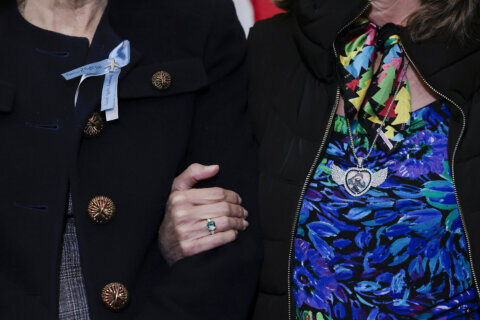The legendary commuting congestion around D.C. does more than just make people late — it’s prompting road rage and fueling some of the country’s angriest drivers.
A new national study by Forbes Advisor ranks Virginia No. 4 for having the most confrontational drivers — West Virginia’s drivers rank even worse at No. 3. Maryland comes in at No. 19. The District of Columbia wasn’t included in the study.
Of those polled, more than half in Virginia said they’ve been involved in an incident where the other driver got out of their vehicle to yell at or fight them. Ninety percent have had another driver curse at them, insult them, or make threats.
Drivers in the commonwealth tied with Oklahoma drivers for being fourth most likely to report that another driver had cut them off on purpose, at just below 60%.
Virginia drivers also tied with Missouri drivers for being fifth most likely to experience rude or offensive gestures while driving (67%).
Maryland drivers reported 14% of drivers have had another driver exit their vehicle to yell at or fight them. Thirteen-percent said they experienced road rage very often.
West Virginia drivers were most likely in the U.S. to report that another driver tailgated their car (77%), made rude or offensive gestures at them (75%) and got out of their car to yell at or fight them (61%).
Drivers in West Virginia were also tied with drivers in Texas for being most likely to report that another driver cut them off on purpose (63%).
Why are drivers so confrontational?
In the study of 10,000 licensed drivers — 200 from each state — the top reasons for road rage included:
- Heavy traffic (39%)
- Already feeling stressed (38%)
- Running late (33%)
- Already feeling angry (32%)
- Feeling tired (26%)
As for where they experience road rage most, drivers said it happens most frequently on city streets, followed by highways, parking lots, intersections and rural roads.
Arizona ranked No. 1 for confrontational drivers, while Delaware had the least confrontational drivers.
The Forbes Advisor study was conducted for car insurance companies, which often raise rates after a crash that results in injuries or property damage.








